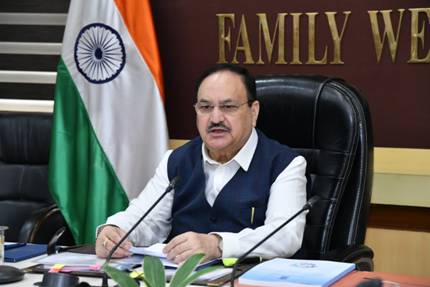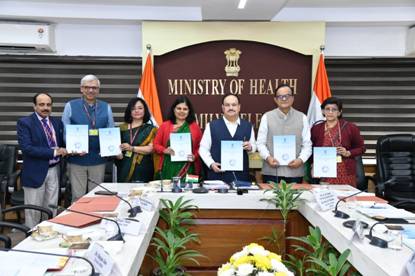Union Health and Family Welfare Minister Jagat Prakash Nadda launched the second edition of the National Action Plan on Antimicrobial Resistance (NAP-AMR 2025–29) in New Delhi on Tuesday. The initiative aims to strengthen India’s response to antimicrobial resistance through coordinated action across sectors.
Addressing the gathering, the Health Minister said antimicrobial resistance remains a major public health challenge and requires collective action. He recalled that discussions on AMR began in 2010 and led to the first National Action Plan in 2017. He noted that AMR poses risks to critical medical procedures such as surgery and cancer treatment and flagged the rising misuse and overuse of antibiotics.
The Minister said NAP-AMR 2.0 has been developed to address gaps identified in the previous plan by strengthening ownership of AMR efforts, improving coordination between sectors and ensuring greater engagement with the private sector. He stressed the need for increasing awareness, education and training and called for enhanced laboratory capacity and infection control in healthcare facilities. He added that regular stakeholder meetings would help resolve challenges swiftly.
Speaking at the event, Principal Scientific Advisor Dr A K Sood described the launch of NAP-AMR 2.0 as timely, coinciding with the beginning of the WHO’s World AMR Awareness Week. He said India is among the countries steering global AMR action. He pointed out that Kerala and Gujarat are the first states to ban over-the-counter sale of antibiotics and that certain antimicrobials and pesticides have been banned in agriculture. He also highlighted the India AMR Innovation Hub, created to bring together national and international stakeholders and promote collaboration and innovation.
Antimicrobial resistance is recognised as a global health threat with health, social and economic implications. It increases the risk of treatment failures, spread of resistant organisms and financial burden on families and health systems. The Union Health Ministry considers AMR a national priority and has taken multiple measures since the formation of the National Task Force on AMR Containment in 2010, followed by the launch of the first National Action Plan in 2017.
The updated action plan has been designed using a One Health approach, covering human health, animal health, agriculture and the environment. The development of NAP-AMR 2.0 included consultations with stakeholder groups and high-level meetings at NITI Aayog involving more than 20 ministries and departments. Each stakeholder ministry has framed its own action plan with defined timelines and budgets to support monitoring and inter-sectoral coordination.
Following the launch, ministries and departments will prepare implementation roadmaps with participation from the private sector, research and technical institutions, professional bodies, industry, cooperatives, NGOs and international partners. Stakeholders reaffirmed their commitment to the National Action Plan 2.0 during the event.















